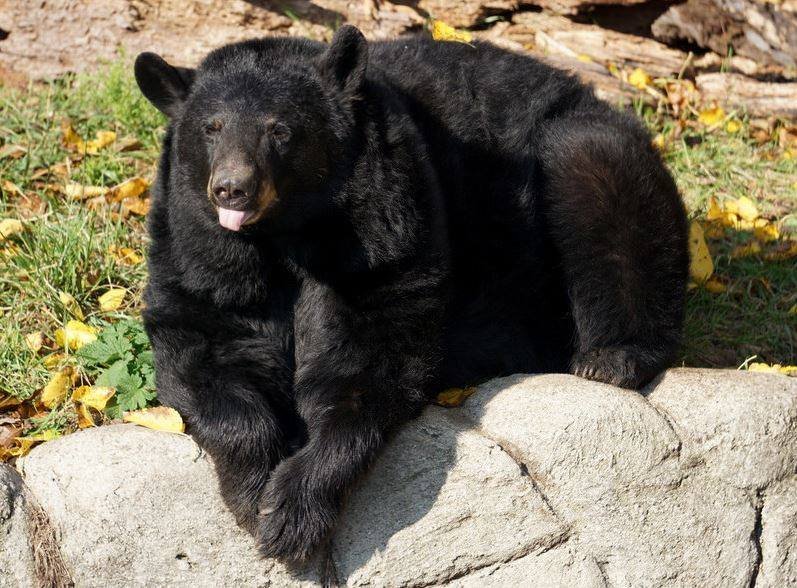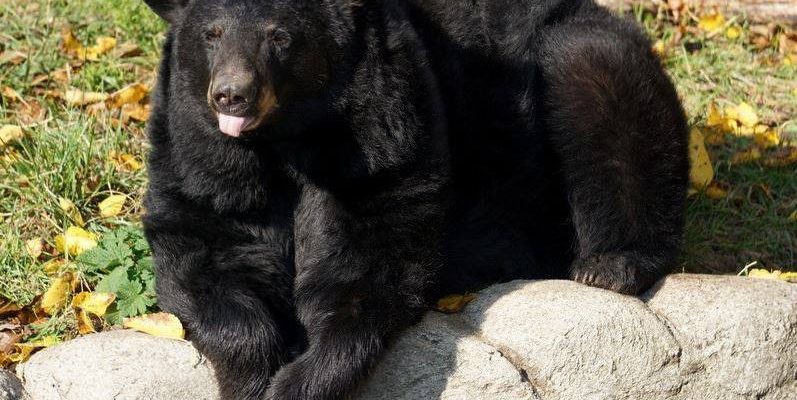
Black bears, scientifically known as *Ursus americanus*, have fascinating behaviors and skills that show they’re more than just wild animals. Their smarts reveal themselves in how they search for food, interact with their environment, and even communicate with one another. So, just how smart are they? Let’s dive into the cognitive world of black bears and explore their behaviors together.
Understanding Black Bear Intelligence
Just like humans have varying levels of intelligence, black bears also display different cognitive abilities. They can adapt to changing environments and learn from experience, which is a hallmark of intelligence. You might be wondering how we even measure animal intelligence. It often comes down to their problem-solving skills, memory, and ability to learn from their surroundings.
Studies have shown that black bears can remember the locations of food sources for several months, demonstrating an impressive long-term memory. They can also learn new tasks quickly, especially if it involves finding food. This knack for memory helps them survive, especially in the wild, where food can be scarce. If a bear discovers a reliable food source, you can bet it’ll remember that spot!
Another interesting aspect of their intelligence is how they use tools. While they don’t craft tools like some primates, black bears can manipulate their environment to access food. For instance, they’ve been observed using rocks to break open nuts or move obstacles in their way. This kind of behavior suggests that black bears have a level of cognitive understanding that allows them to interact creatively with their world.
The Social Lives of Black Bears
Black bears are generally solitary creatures, but that doesn’t mean they lack social intelligence. In fact, their interactions with other bears can be quite complex. Just like humans, they communicate with one another through a variety of sounds and body language. For example, they might growl, huff, or even bark to express their feelings or intentions.
During mating season, male black bears will often compete for the attention of females. This competition can lead to displays of strength and intelligence, as males may demonstrate their fitness by showing off their abilities to climb trees or forage efficiently. You could think of it as a unique dating game, where the smartest and strongest attract the best mates.
Moreover, black bears also exhibit a hierarchy, especially when it comes to food. Imagine a family picnic where the oldest kids get first dibs on dessert! Bigger, older bears usually get the first pick of food sources. This social structure means younger bears must learn to navigate their environment wisely, often relying on their problem-solving skills to find food without getting into trouble with older bears.
Problem-Solving and Adaptability
One of the most striking features of black bear intelligence is their problem-solving skills. They can figure out how to open containers, unlatch gates, or navigate fences to access food. Think about that one smart friend who always finds a way to solve tricky dilemmas—that’s what black bears do when faced with obstacles!
In urban areas, black bears have adapted remarkably well to human environments. They’ve learned how to rummage through trash cans, open car doors, and even raid bird feeders. This adaptability shows their high intelligence and ability to change behavior based on new challenges. It’s a bit like how we learn to adjust our plans when things don’t go as expected.
Moreover, black bears are highly observant. They often watch other animals (including humans) to learn new methods for acquiring food. If they see a human easily accessing a food source, they might eventually figure out how to mimic that action. This ability to learn from others is a significant indicator of their cognitive skills.
Memory and Learning in Black Bears
Memory plays a crucial role in the lives of black bears. They need to recall locations of food sources, water, and safe areas for hibernation. This capacity for memory helps them thrive in diverse environments and increases their chances of survival. Imagine trying to find your way in a huge city without a GPS; that’s what life is like for bears without a strong memory.
Research has shown that black bears can remember specific places where food is abundant, even after several months. This long-term memory allows them to return to these spots season after season. When a bear discovers a new food source, it creates a mental map of that location, ensuring it can find it again in the future.
In addition to memory, learning is paramount. Black bears learn effectively from both experience and observation. For example, a young bear may watch its mother forage and then apply what’s learned when searching for its own food. This kind of learning helps ensure that the next generation of bears is just as skilled in finding food and staying safe.
Communication Among Black Bears
Communication is another essential aspect of black bear behavior that showcases their intelligence. They communicate through vocalizations, body language, and even scents. When they encounter each other, they don’t just grunt or growl randomly; their sounds convey specific messages. This nuanced communication helps them establish territorial boundaries, signal danger, or even indicate readiness for mating.
For instance, when two bears meet, a series of vocalizations can indicate whether they want to establish dominance or avoid conflict. It’s somewhat similar to how humans use tone and body language to convey feelings during conversations. A bear may puff up to seem larger if it feels threatened, while a lower stance can indicate submission.
Additionally, black bears use scent marking to communicate with one another. They have scent glands in various parts of their bodies, and by rubbing against trees or leaving droppings, they can send signals to other bears about their presence, reproductive status, or territory. It’s like leaving a note for others to see!
The Role of Intelligence in Survival
The intelligence of black bears plays a crucial role in their survival. The ability to adapt to changing environments, remember food locations, and communicate effectively all contribute to their longevity. In a world where food sources are unpredictable and human interactions can be dangerous, being smart gives them an edge.
For instance, during times of food scarcity, black bears that can recall past food sources or locate new opportunities stand a better chance of survival. Their problem-solving skills also come into play when navigating human environments, allowing them to avoid traps and hazards. You could say their smarts are like built-in survival tools.
Moreover, as human populations expand, black bears face increasing challenges. Those with higher cognitive abilities are more likely to adjust their behaviors and find alternative food sources. This adaptability can make all the difference in ensuring their survival in an ever-changing world.
So, how smart are black bears? Pretty darn smart! Their cognitive abilities reflect remarkable strategies for survival in the wild. From problem-solving and memory to complex social interactions, these bears demonstrate a level of intelligence that’s both captivating and essential for their survival.
In a way, black bears remind us how nature equips creatures with the tools they need to thrive. Their intelligence allows them to navigate a world full of challenges, showing us just how fascinating and adaptable wildlife can be. So, next time you think about bears, remember they’re not just furry creatures—they’re also clever problem-solvers with a rich social life and a knack for adaptability.

